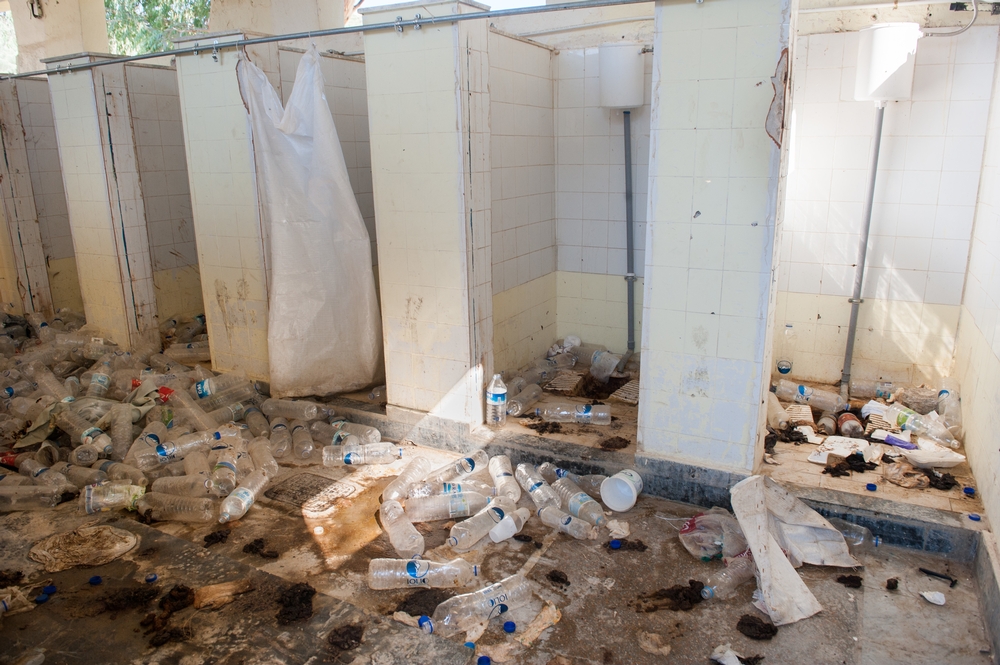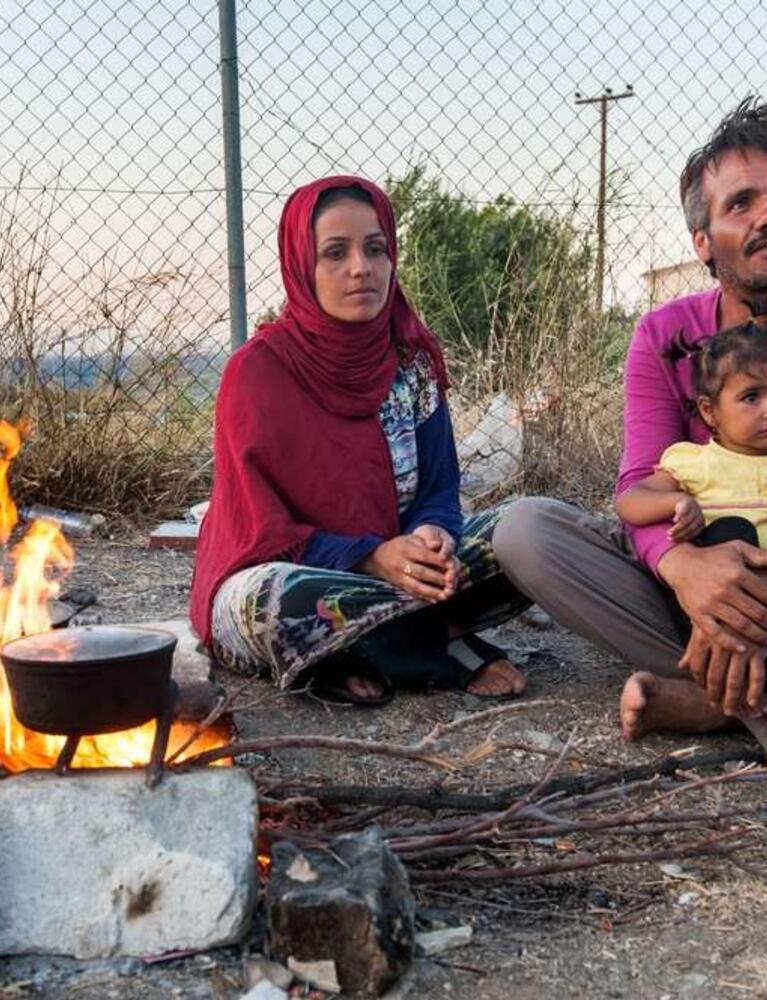Thousands of people are currently stranded in precarious conditions across several Greek islands, despite repeated calls to Greek authorities and the EU to address the lack of reception capacity.
A Médecins Sans Frontières/Doctors Without Borders (MSF) emergency response team has arrived in Lesbos - one of the two islands in Greece that has reception facilities, but where the system is on the edge of collapse. MSF is also continuing its existing activities for those arriving in Kos and other Dodecanese islands.
Jeilan and her daughter, from Syria
“I am here with my husband and my four-year-old daughter. We had to leave Aleppo because of the bombing. We ran for our lives. We did not bring anything with us, we left every-thing behind.
“We came from Turkey by sea, at night. It was very dangerous, the wind was strong and the sea was rough. My children would not stop crying. It was a small boat, about four metres long. There were 50 people inside, not protected.
Arriving in Greece by boat
“When we arrived at the beach, we found we had to walk 5.5 km with our children. There was no one to take us and the cars would not stop. First we went to the coastguard to get registered. We gave our names and they told us we would get our papers in a day or two, and then we could leave for Athens.
“There are four other families with us – 10 or 11 people altogether. We have been here for five days, and are still waiting for our papers.
“When we went to the police station yesterday to collect the papers, they told us that they did not have our names. They had made a mistake. The police officer shouted at me, “Go, just go”. He gave no explanation, and did not say when we should come back.
“We are staying in a dirty tent. There are no mattresses to sleep on, just cardboard boxes. There are no blankets, nothing, just dirt.
“We don’t even want to go near the toilets. The water is not clean, we cannot wash.
One piece of bread
“The food is not good. For breakfast, we have one piece of bread shared between three people.
“One woman arrived today with her two small babies. Their clothes are all wet, but they don’t have any more clothes. She has been asking where she can find some milk for her baby, but nobody gives her milk, so she will have to buy it from somewhere.
“We don’t see any help provided for us here in Greece. We don’t want to stay here.
“I can’t believe that I am living in such conditions with my family. I used to be a teacher and my husband was an accountant. Look at us now! This is inhumane.”
Poor hygiene
Approximately 5,000 people, mainly from Syria, Afghanistan and Iraq, have arrived in Lesbos in the last few days. However, the existing Moria reception facility can only accommodate around 700 people, and suffers from overcrowding, poor hygiene conditions and a lack of food.
Thousands of new arrivals are therefore forced to camp out in the open, most of them in Kara Tepe - a plot of land without any form of management and where people have little or no access to water, shelter, latrines or medical care.
Despite efforts by authorities to distribute food, the rations are insufficient to cover the needs of all people.

Skin infections
In Kos where MSF provides medical and humanitarian assistance to people arriving on the island, 700 people are sleeping on the floor among rubble and shattered glass in an old dilapidated building with a maximum capacity of 200.
MSF medical teams are regularly receiving patients that are suffering from conditions such as scabies and skin infections - a direct result of unhygienic living conditions.
Despite MSF’s efforts to clean and improve the water and sanitation provision, conditions can only be significantly improved by action and willingness by the local authorities to address the situation.

Greece cannot cope alone
“While MSF and other organisations can assist in the humanitarian response, the efficiency and impact of any relief efforts will be seriously hampered by the failure to provide and maintain an adequate reception system” says Stathis Kyroussis, MSF’s head of mission in Greece.
“The current situation is a violation of Greece's and the EU's obligations towards asylum seekers and migrants. Given the deep economic crisis that Greece is facing, it cannot be assumed that Greece can cope with this alone.
Humanitarian resources
“The EU and its member states should urgently deploy humanitarian resources such as emergency funding and material assistance to support Greece in responding to the basic needs of newly arrived migrants and asylum seekers. UNHCR also needs to take direct responsibility, translate their words into real action, and step up its response in delivering humanitarian assistance” added Kyroussis.

Putting health at risk
“Leaving people to fend for themselves in an abandoned building or a field full of garbage where there is hardly any water or latrines is simply unacceptable and is putting people's health at risk” says Elisabetta Faga, MSF emergency coordinator in Lesbos.
“Greek authorities should provide additional places under administrative responsibility of the state, where humanitarian assistance, such as food, shelter, sanitation and medical care can be provided by other organisations.
“Authorities also need to ensure that efficient registration procedures are put in place, and that new arrivals are provided with information about what to do and where to go.”
Improving sanitation
MSF plans to soon provide medical consultations, cleaning services and relief items and work on improving water and sanitation in the Kara Tepe and Moria camps.
MSF has already begun providing bus transportation so new arrivals do not need to walk the seventy kilometre distance from arrival points on the north coast to the registration centre in Mitilini.






